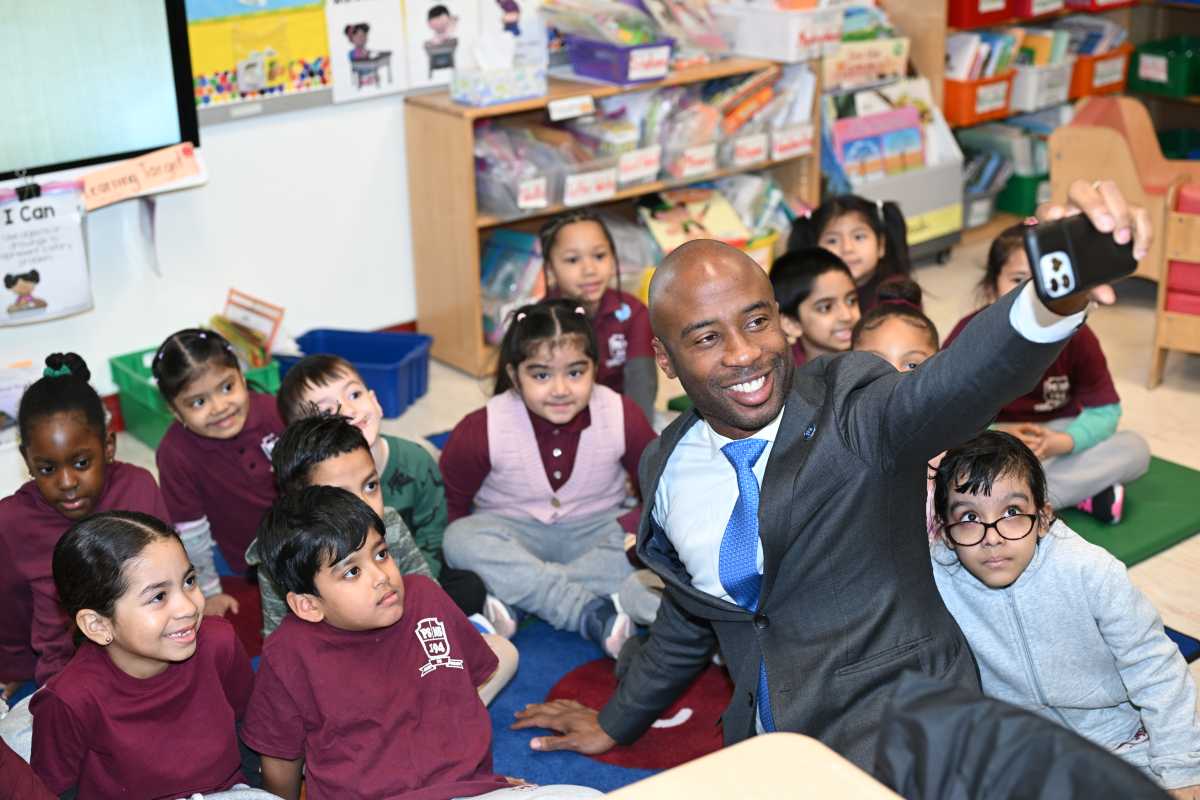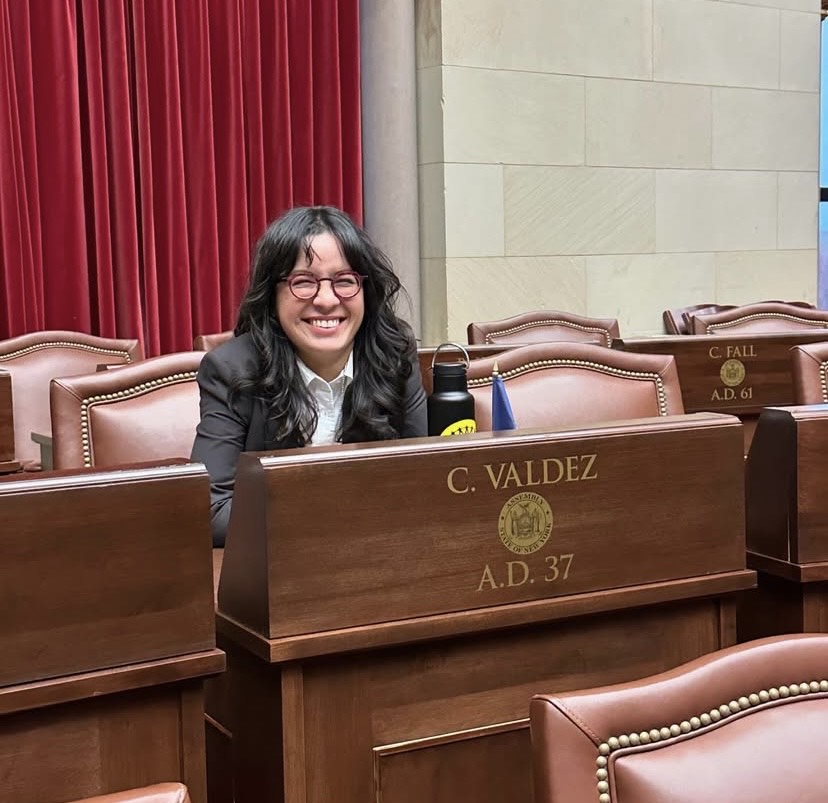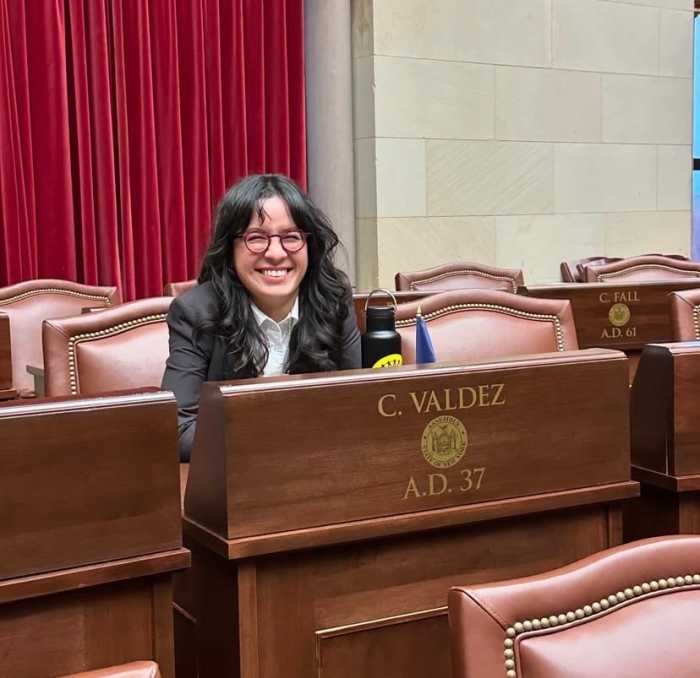Regents exam requirements could soon be a thing of the past in New York state.
The state Education Department (NYSED) released a plan Monday — ironically just as high school students are prepping for and taking the year-end exams — to nullify the mandate that high schoolers take the tests, based upon recommendations of the NYS Blue Ribbon Commission on Graduation Measures.
“NYSED recommends decoupling specific assessment requirements from graduation requirements. Doing so means that students will no longer need to pass the Regents exams,” the plan states.
The Board of Regents, which is separate from NYSED, still has to approve the plan. Students will still have to take the Regents exams planned for this month. Those tests start Friday, June 14.
If the requirement goes away, Regents tests would remain an option for students who want to demonstrate their proficiency in meeting the state’s learning standards.
Currently, New York students earn one of three types of high school diplomas when they graduate: A Regents diploma, an advanced Regents diploma or a local diploma. Students must reach a score of at least 65 on five state exams to get a standard Regents diploma.
All three options are valid high school diplomas. With the elimination of Regents, the state would move to offering just one diploma.
The proposal to nix the Regents is part of the NYSED’s larger vision to transform the state’s graduation requirement.
Another proposed change is to adopt the NYS “portrait of a graduate,” which state officials say is designed to show what students have mastered throughout their high school academic experience.
To earn a high school diploma, students would have to demonstrate proficiency in each component of the portrait, which includes critical thinking, innovative problem solving and literacy across content areas.
They would also have to be “culturally competent, socially-emotionally competent, effective communicators and global citizens,” according to the plan.
“The educational transformation we envision reflects the thoughtful input we received from our stakeholders, particularly from public school students and their families,” said NYSED Commissioner Betty Rosa. “It takes an incredible amount of time, work and collaborative effort to transform an education system, and we will not stop working until we get the job done right for all New Yorkers.”

Critics and supporters weigh in
Kim Sweet, executive director of Advocates for Children of New York (AFC), an organization that helps students from low-income backgrounds, said the Regents exams are not only unnecessary but also can be “harmful” to students.
“Exit exam policies like New York’s have caused significant harm to young people while failing to achieve their intended aim of improving the quality of teaching and learning,” Sweet said.
Sweet added that the Regents policy is not supportive of students who struggle with standardized tests.
“At AFC, we routinely work with students, many of whom have disabilities or are still learning English, who have completed their coursework but are unable to earn a high school diploma because they struggle with standardized assessments, sometimes sitting for a single exam a half-dozen times to try to raise their score by just a few points,” she added. “Allowing young people to demonstrate their skills and knowledge in multiple ways, without requiring them to pass high-stakes exams, will help ensure our state’s education system meets the needs of today’s students. “
Other education experts are more critical of the change in policy, including Andy Lockwood, CEO and co-founder of Lockwood College Prep.
“I’m against eliminating the Regents because there’s so much grade inflation in schools already that it’s getting harder and harder to figure out whether kids qualify to do the work in college,” he said.
While Lockwood admits standardized tests are not perfect, he added that they help educators determine how well students have learned subjects.
“The more you chip away at these standardized tests that are supposed to level the playing field, the harder it is to be able to ascertain whether a kid has enough of the required curriculum in all the core subjects under his or her belt,” he added.
Alan Singer, professor of education at Hofstra University in Hempstead, N.Y., said Regents exams are beneficial in that they provide teachers with student expectations that assist in lesson and curriculum development.
“Without the exams, or with exams but no requirement that students pass to graduate, what gets taught in social studies, history, and civics will vary from school to school and from class to class,” Singer said. “This is a disaster in a society that is already atomized and where there is sharp disagreement about the meaning of the past and the issues that face the country today. In sequential subjects like math, students will be passed on to more difficult classes without any evidence that they mastered the prior work.”
NYSED will conduct a series of public forums between July through October to get feedback before presenting an official proposal with a timeline and considerations to the Board of Regents in November.







































